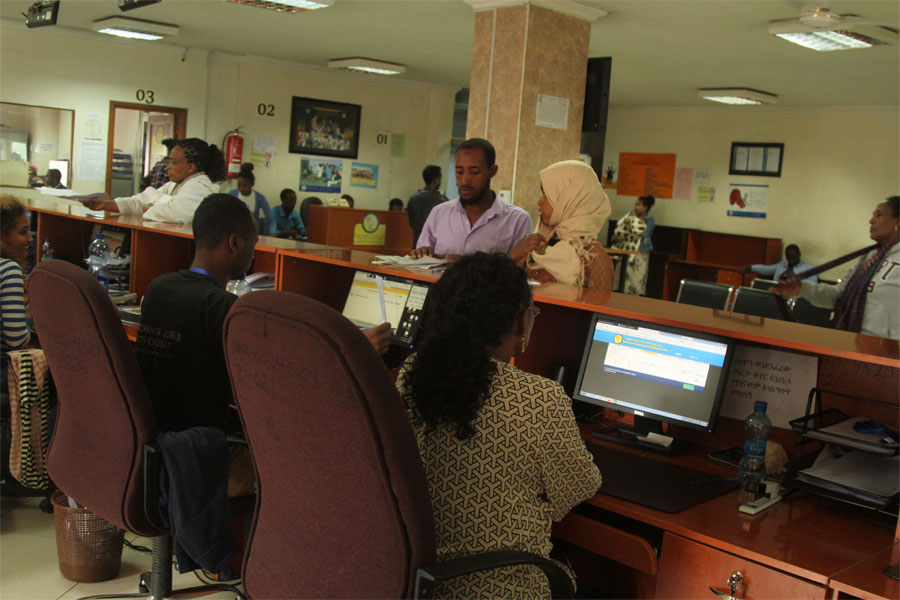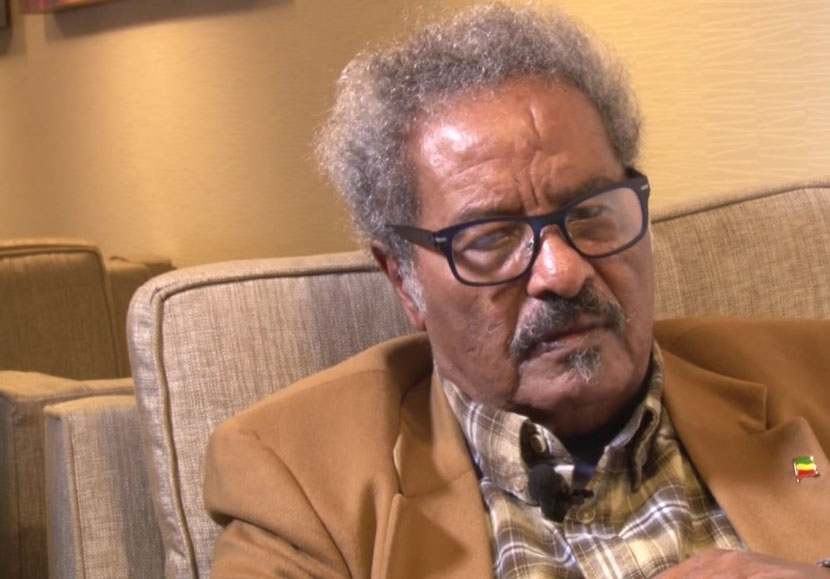
Radar | Jan 05,2020
The Higher Education Relevance & Quality Agency (HERQA) has drafted a directive that will enable higher education institutions to teach undergraduate and postgraduate students online.
It is the first ever online learning directive and was sent to the Ministry of Science & Higher Education for approval last week. Once approved it will enable the Agency to regulate both private and public higher education institutions that provide online education. The Agency has been drafting the directive for the past year and a half in collaboration with experts in education, information communications and the law.
Mid-last week, the draft was tabled for consultation in the attendance of HERQA’s board members, which include representatives from Addis Abeba University, the Civil Service Commission, Kotebe Metropolitan University, the Private Higher Education Institution Association and the Ethiopian Chamber of Commerce & Sectoral Association.
The directive comes onto the scene at a time when all educational institutions from the elementary to university level are closed as a result of the Novel Coronavirus (COVID-19). Since closing, higher education institutions have been trying to deliver classes online.
The directive is expected to be approved and become effective in the coming two weeks, according to Andualem Admassie (PhD), director-general of the Agency, which will give accreditation to the institutions and renew their licenses. The Agency will also follow up with the institutions, set out criteria and support and control the institutions.
The directive aims at increasing access to higher education at various levels and meeting the needs of citizens who have not had access to online higher education, according to Andualem.
“It's also important to outline a system to enable the Agency to license higher education institutions for online teaching, renew their licenses and regulate them,” said Andualem.
The directive will govern the 50 state universities and 250 other colleges across the country. So far, the Agency has registered a total of 1.4 million students that graduated from higher education institutions in the last two decades. For the current fiscal year, the government allocated 50.6 billion Br, 13pc of its total budget, for education.
The directive states that online education programmes shall be provided in the English language, except for language courses. Higher education institutions can admit students only after getting approval from the Agency, which was first established in 2003 and tasked with accrediting and re-accrediting programmes in higher education institutions.
To get approval from the Agency, the institutions are required to prepare a curriculum, outline a digital instruction design, arrange teacher and student support services and assessments, and set up a student registration system.
Education credentials obtained from online learning through the accreditation of the Agency will be equitably accepted, according to the directive.
The directive will enable institutions that are already well-equipped for the service but blocked from launching the service due to the lack of a legal framework, according to Wondwosen Tamrat, president of St. Mary’s University and vice president of the Private Higher Education Institutions Association.
“It'll give an opportunity to the educational institutions to build up their technological capacity,” said Wondwosen.
So far, the Higher Education Relevance & Quality Agency has issued guidelines for regular, distance, and cross-border certification and renewal. It also accredits institutions and ensures that basic quality standards are met.
At least one education expert believes that the directive serves as an option to make education accessible to the community, but it remains an open question whether or not it takes social justice into account.
It makes a huge difference between students with access to the internet and without access, according to Belay Hagos (PhD), an associate professor at Addis Abeba University’s Institute of Education Research.
“It is obvious that online learning can be used only by a student who is supported by digital technologies and that it requires financial capabilities,” he said. "It seems that the directive is designed for just a few students."
Nevertheless, it will have a significant impact on people with disabilities and those who do not have the opportunity to go to school, according to Belay.
PUBLISHED ON
Jun 20,2020 [ VOL
21 , NO
1051]

Radar | Jan 05,2020

Fortune News | Aug 16,2020

Fortune News | Dec 10,2018

Agenda | May 31,2020

Fortune News | Jan 26,2019

Commentaries | Nov 30,2019

Verbatim | Nov 17,2018

My Opinion | Feb 20,2021

Fortune News | Dec 12,2020

Radar | Sep 08,2019

Dec 22 , 2024 . By TIZITA SHEWAFERAW
Charged with transforming colossal state-owned enterprises into modern and competitiv...

Aug 18 , 2024 . By AKSAH ITALO
Although predictable Yonas Zerihun's job in the ride-hailing service is not immune to...

Jul 28 , 2024 . By TIZITA SHEWAFERAW
Unhabitual, perhaps too many, Samuel Gebreyohannes, 38, used to occasionally enjoy a couple of beers at breakfast. However, he recently swit...

Jul 13 , 2024 . By AKSAH ITALO
Investors who rely on tractors, trucks, and field vehicles for commuting, transporting commodities, and f...

Jul 5 , 2025
Six years ago, Ethiopia was the darling of international liberal commentators. A year...

Jun 28 , 2025
Meseret Damtie, the assertive auditor general, has never been shy about naming names...

Jun 21 , 2025
A well-worn adage says, “Budget is not destiny, but it is direction.” Examining t...

Jun 14 , 2025
Yet again, the Horn of Africa is bracing for trouble. A region already frayed by wars...